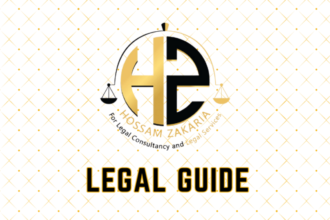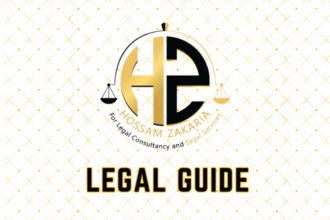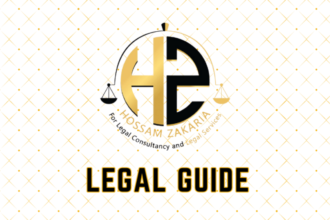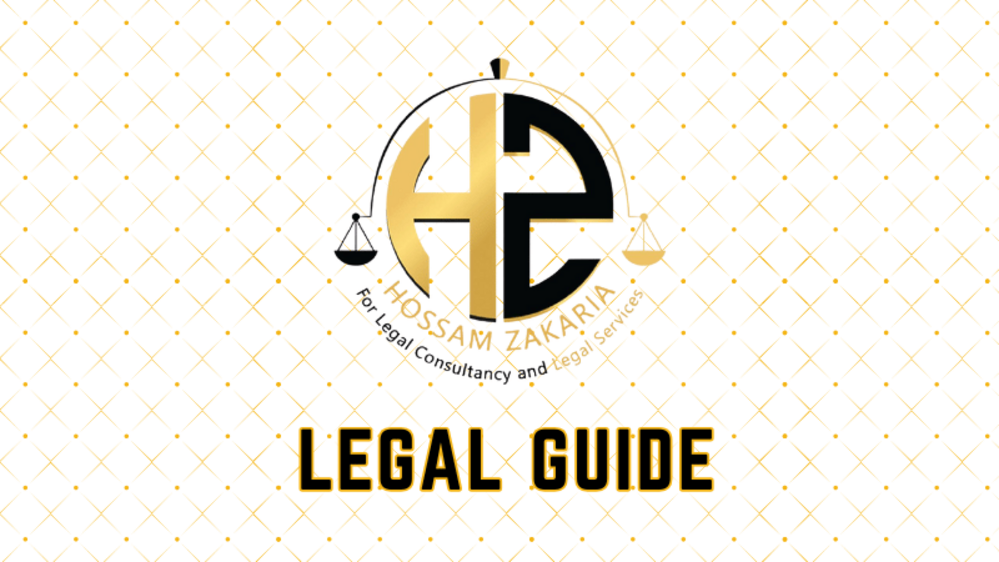Introduction
As cross-border commercial activity between the United Arab Emirates (UAE) and Qatar accelerates, the growing volume and complexity of transactions highlights the critical importance of dispute resolution frameworks. Arbitration, recognized for its efficiency and enforceability, is a cornerstone mechanism enabling UAE businesses to confidently engage in the Qatari market. Recent updates in regional laws and the increasing alignment with international arbitration standards make it imperative for UAE entities to understand not only the regulatory landscape, but also the practical nuances of navigating arbitration institutions in Qatar.
This article offers a comprehensive, consultancy-grade analysis tailored for UAE businesses, legal professionals, and decision-makers seeking actionable insights into Qatar’s arbitration ecosystem. By referencing Qatari and UAE legal sources, examining the latest legislative updates, and providing strategic guidance, we aim to equip leaders with the knowledge to mitigate exposure, optimize contractual safeguards, and drive favorable outcomes in arbitration proceedings held in Qatar.
Table of Contents
- Legal Framework: Arbitration Laws in Qatar and the UAE
- Major Arbitration Institutions in Qatar
- Comparative Analysis: UAE and Qatar Arbitration Regimes
- Institutional Rules and Practical Insights
- Case Studies and Hypothetical Scenarios
- Risks of Non-Compliance and Effective Compliance Strategies
- Best Practices for UAE Businesses
- Conclusion
Legal Framework: Arbitration Laws in Qatar and the UAE
Arbitration in Qatar: Relevant Statutes and Recent Developments
The principle source of arbitration law in Qatar is Law No. 2 of 2017 (Qatar Arbitration Law), which adopts many provisions from the UNCITRAL Model Law. The law applies to both domestic and international commercial disputes, elevating arbitration’s profile and aligning Qatari practice with global standards.
Key aspects of Law No. 2 of 2017 include:
- Freedom to select arbitration institutions, venues, and law (subject to Qatari public policy)
- Support for interim measures and party autonomy
- Clarity on the recognition and enforcement of arbitral awards, including foreign awards under the New York Convention (to which Qatar is a signatory)
This legal architecture has been reinforced by Qatar’s judiciary, progressively adopting a pro-arbitration stance, further enhancing protection for cross-border investors.
Arbitration in the UAE: Contrast and Convergence
The UAE operates under Federal Law No. 6 of 2018 (UAE Arbitration Law), which closely mirrors UNCITRAL principles and has been updated per recent Cabinet Resolutions (notably Cabinet Resolution No. 57 of 2018 and amendments through 2025).
Key features relevant for UAE businesses transacting in Qatar:
- Clear support for institutional and ad hoc arbitration
- Specialized arbitration centers (e.g., DIAC, ADCCAC, DIFC-LCIA)
- Court assistance for the appointment of arbitrators and recognition/enforcement of awards
The overall trend is towards harmonization, reducing the legal friction for cross-border arbitration involving UAE parties.
Table: Key Statutory Comparisons for UAE and Qatar Arbitration
| Aspect | UAE (Federal Law No. 6/2018) | Qatar (Law No. 2/2017) |
|---|---|---|
| Legal Foundation | UNCITRAL Model Law (adapted) | UNCITRAL Model Law (adopted) |
| Institutional Arbitration | DIAC, ADCCAC, DIFC-LCIA, others | QICCA, QFC-CCADR, ICC, others |
| Interim Measures | Permitted & Court-Supported | Permitted & Court-Supported |
| Enforcement of Foreign Awards | New York Convention (since 2006) | New York Convention (since 2002) |
| Main Recent Amendments | 2021/2025 updates on remote hearings, digital signatures | Amendments to enhance party control and digital processes |
Major Arbitration Institutions in Qatar
1. Qatar International Center for Conciliation and Arbitration (QICCA)
Established under the Qatar Chamber, QICCA is the premier arbitration institution in Qatar. It administers disputes involving Qatari or international parties under its own Arbitration Rules (last revised 2021).
- Language and Procedures: Flexible; allows non-Arabic proceedings and party representation by foreign counsel.
- Areas of Focus: Commercial, construction, corporate, and infrastructure disputes.
Official Source: QICCA Official Website
2. Qatar Financial Centre Civil and Commercial Court Dispute Resolution Centre (QFC-CCADR)
QFC-CCADR operates within the Qatar Financial Centre framework, handling domestic and international arbitration, particularly for financial and commercial disputes governed by QFC regulations.
- Administers both QFC and international commercial disputes.
- Rules based on leading international standards; proceedings can be tailored for efficiency and confidentiality.
Official Source: QFC DRC Website
3. International Chamber of Commerce (ICC) Qatar
Qatar’s local ICC presence (via ICC Qatar) facilitates access to the ICC International Court of Arbitration rules, preferred for high-value or multi-jurisdictional contracts.
- Suitable for complex, multinational business transactions.
- ICC arbitration awards are widely recognized and enforceable.
Comparative Analysis: UAE and Qatar Arbitration Regimes
Alignments
Both jurisdictions have modernized arbitration regimes, ensure compatibility with UNCITRAL principles, and enforce foreign arbitral awards in line with international conventions. This creates predictability and reliability for UAE parties in Qatari arbitrations.
Differences
| Component | UAE | Qatar |
|---|---|---|
| Court Oversight | Specialist arbitration judges (notably in DIFC) | More centralized judicial intervention, especially in appointment and award review |
| Confidentiality | Implied under UAE law, more explicit in institutional rules | Statutorily protected and central to QICCA/QFC rules |
| Available Institutions | Multiple, including international and free zone centers | Fewer but highly specialized (QICCA, QFC-CCADR, ICC Qatar) |
| Costs | Variable, often competitive | Slightly higher for major international centers |
| Appeal/Challenge Routes | Limited, with strong pro-arbitration enforcement | Somewhat broader judicial review provisions |
Old vs New Laws: Key Distinctions
| Criteria | Pre-2018/2017 Law | Post-2018 (UAE)/2017 (Qatar) |
|---|---|---|
| Recognition of Digital Evidence | Implied or fragmented | Explicitly recognized (critical for remote hearings and e-submissions) |
| Enforcement Process | Longer, with more possible judicial delays | Streamlined, with express timetables |
| Party Autonomy | Constrained by domestic court oversight | Greater freedom to tailor procedures and select arbitrators |
Institutional Rules and Practical Insights
QICCA Arbitration Rules
QICCA’s 2021 Rules incorporate global best practices, emphasizing speed, flexibility, and enforceability. For example, summary procedures are available for clear-cut claims, and awards can be rendered digitally. QICCA also provides guidance on the language of proceedings, multi-party arbitration, and emergency arbitrator appointments.
QFC-CCADR Arbitration Rules
These rules emphasize confidentiality, party autonomy, and robust enforceability, closely modeled on the UNCITRAL and DIFC protocols. They are especially suitable for finance and investment disputes.
ICC Rules (as applied in Qatar)
The ICC’s global standards apply, notably:
- Emergency arbitrator provisions
- Fast-track procedure for claims under USD 3 million
- Scrutiny of draft awards for enforceability
Practical Recommendations for UAE Entities
- Draft arbitration clauses to specifically reference the preferred Qatar institution, the governing law, seat of arbitration, and language
- Consider institutional preferences: QICCA for Qatari-centered contracts, ICC for multi-jurisdictional, QFC-CCADR for financial disputes
- Review and update contracts for recent digital/remote hearing protocol amendments
Case Studies and Hypothetical Scenarios
Case Study 1: Construction Dispute under QICCA Administered Arbitration
A UAE-based engineering firm enters a joint venture with a Qatari contractor for a large infrastructure project in Doha. Their contract, specifying QICCA-administered arbitration, includes a clause for proceedings in English and enforcement in Qatar and the UAE.
- When a payment dispute arises, both parties initiate arbitration at QICCA.
- The process is conducted in English, and the arbitrators are jointly selected with one from each country plus a neutral chair.
- The resulting award, after Qatari judicial review, is successfully recognized and enforced in the UAE under the New York Convention, enabling swift asset recovery.
Case Study 2: Financial Dispute in the QFC-ADR Framework
An Abu Dhabi investor in a QFC-listed entity seeks recourse through QFC-CCADR after contractual terms are breached. Despite the respondent being outside Qatar, the award is enforced through UAE courts, highlighting the practical value of choosing enforceable arbitral institutions.
Table: Pitfalls and Compliance Solutions
| Pitfall | Risk | Effective Solution |
|---|---|---|
| Poorly Drafted Arbitration Clauses | Jurisdictional challenges, unenforceable awards | Use vetted model clauses; seek legal review |
| Choice of Law Inconsistencies | Lengthy disputes over governing law | Clearly designate applicable law and seat |
| Lack of Representation Recognized by Qatari Law | Possible non-enforcement of foreign counsel | Engage counsel familiar with Qatari arbitration practice |
| Ignorance of Digital Process Requirements | Delay or exclusion of digital evidence | Align processes with latest QICCA or ICC guidelines |
Risks of Non-Compliance and Effective Compliance Strategies
Risks and Penalties
- Delayed or denied enforcement of awards due to formal defects in arbitration agreements.
- Exposure to adverse costs, reputational damage, or litigation risks if the local arbitration laws are not adhered to.
- Possible criminal and civil liabilities for non-compliance with notification and representation rules (referencing Qatar’s Ministry of Justice and parallel measures in the UAE legal system).
Compliance Checklist for UAE Businesses
| Step | Compliance Task |
|---|---|
| 1 | Engage experienced arbitration counsel for cross-border contract negotiations |
| 2 | Review and update existing arbitration clauses for compatibility with 2021/2025 legal updates |
| 3 | Confirm institutional rules and language preferences are correctly reflected in contracts |
| 4 | Ensure enforceability of digital evidence and electronic signatures under both Qatari and UAE laws |
| 5 | Undertake due diligence on the qualifications of arbitrators (check against QICCA and ICC requirements) |
Best Practices for UAE Businesses
- Clause Drafting: Use precise arbitration and governing law clauses. Institutions like QICCA and ICC provide sample clauses—adapt these after legal consultation to avoid enforceability challenges.
- Due Diligence: Assess and select the appropriate institution based on contract type, value, and parties’ locations. Use the institution’s published rules as a checklist during negotiations.
- Counsel Selection: Retain legal advisors experienced in both UAE and Qatari arbitration practice to bridge regulatory gaps and ensure compliance with updated procedures.
- Document Management: Prepare digital records and authentic electronic signatures, ensuring conformity with both jurisdictions’ recognition standards, especially important post-2021 reforms.
- Monitor Regulatory Updates: Assign dedicated legal resources to monitor and implement annual changes to arbitration regulations in both countries.
Conclusion
Qatar’s enhanced arbitration framework, harmonized with the UAE’s modernized regime, creates a stable foundation for cross-border trade and investment. The ongoing evolution of arbitration rules—encompassing digitalization, efficiency, and deeper party autonomy—offers unparalleled opportunities for UAE businesses engaged in the Qatari market. However, the complexity of navigating institutional rules, statutory amendments, and enforcement procedures demands a proactive compliance posture.
To achieve optimal results, UAE business leaders and in-house counsel should adopt a structured approach: draft robust contracts, select arbitration institutions with care, leverage up-to-date legal advice, and adhere to best-practice compliance checklists. Looking ahead, as Doha and Abu Dhabi remain central commercial hubs, mastery of cross-border arbitration will be a key differentiator enabling businesses to thrive in an increasingly sophisticated regional legal environment. Innovation, vigilance, and strategic counsel remain essential for remaining compliant and competitive under the latest UAE and Qatari law updates.



